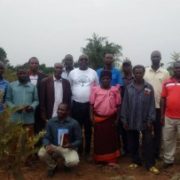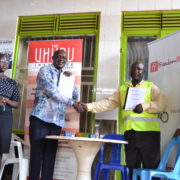Uganda to open EA’s largest organic fertilizer in Tororo
Sitting on a 600-acre piece of land, the Guangzhou Dongsong Energy Group-owned industrial complex in Tororo District, will produce about 300,000 tonnes of organic fertilisers annually, making it the biggest organic fertiliser plant in East Africa. Ms Jane Guo, the group chief executive officer, said the fertiliser production section will be launched on October 9 with the firm expected to roll out full production in June next year.
“We are on course. Different sections have been given to different contractors and so far the progress is good. ,” she said during a press briefing.
The fertilisers, she said, are designed specifically for Ugandan soils to boost agriculture in the country.
Chemical fertilisers
Uganda imports approximately 100,000 tonnes of chemical fertilisers annually, which Ms Guo says, is dangerous to the soils. Apart from the fertilisers, the factory will also manufacture construction materials such as steel, glass and unbaked bricks.
The fertiliser factory, when completed, will mark years of controversy, corruption and bribery allegations that dogged the process of awarding the company mining rights.
Inspector-General of Government Justice Irene Mulyagonja had previously investigated the company over allegations of fraud, bribery and outright corruption.
However, the IGG later dropped the investigations paving way for the construction of the $650 million investment. Construction work is already going on at the industrial park, with the first batch of equipment expected in the country for installation late this month.
According to Ms Guo, work should have been completed by March. However, there have been delays due to rigorous testing procedures of new technology and failure to secure financing in time.
The post Uganda to open EA’s largest organic fertilizer in Tororo appeared first on The Cooperator News.




